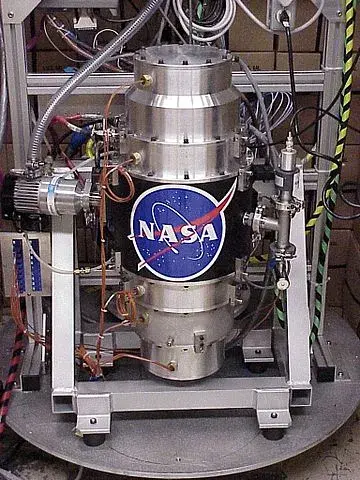The Role of Batteries in Space Exploration
- linjf07
- Jun 28, 2024
- 3 min read
Space exploration is one of the most challenging and ambitious endeavors undertaken by humanity. At the heart of this quest lies the need for reliable and efficient power sources, and batteries play a crucial role in meeting this requirement. From powering spacecraft and rovers to enabling scientific instruments and life support systems, batteries are indispensable in space missions. This blog explores the role of batteries in space exploration, the types of batteries used, their benefits, and the future of battery technology in this frontier.
Powering Spacecraft and Rovers
Batteries are essential for powering various components of spacecraft and rovers. In spacecraft, batteries provide energy for propulsion systems, navigation, communication, and scientific instruments. For example, the Mars rovers, such as Curiosity and Perseverance, rely on batteries to power their movements, operate their scientific equipment, and transmit data back to Earth. These batteries must be highly reliable, capable of withstanding extreme temperatures, and able to operate in the vacuum of space.
Types of Batteries Used in Space Missions
Several types of batteries are used in space missions, each selected for their specific properties. Lithium-ion batteries are the most commonly used due to their high energy density, lightweight, and long cycle life. They are found in many space applications, from small satellites to large spacecraft. Silver-zinc batteries, known for their high energy density and reliability, are often used in short-duration missions and as backup power sources. Nickel-hydrogen (NiH2) batteries have been a staple in space missions for decades due to their long life and ability to handle the extreme conditions of space. These batteries are typically used in large satellites and the International Space Station (ISS).
Enabling Scientific Instruments and Experiments
Batteries are vital for powering scientific instruments and experiments conducted in space. These instruments require a stable and continuous power supply to perform accurate measurements and collect data. For instance, the Hubble Space Telescope uses batteries to power its scientific instruments, enabling it to capture stunning images of distant galaxies and celestial phenomena. Similarly, batteries power the instruments aboard space probes and landers, allowing them to conduct experiments on other planets and moons, analyze samples, and send data back to Earth.
Supporting Life Support Systems
In manned space missions, batteries play a critical role in supporting life support systems. These systems provide astronauts with essential services such as air purification, temperature control, and water recycling. Batteries ensure that these systems remain operational even during power interruptions or when the spacecraft is in the shadow of a planet, away from direct sunlight. The reliability and endurance of batteries are crucial for maintaining a safe and habitable environment for astronauts.
Benefits of Advanced Battery Technology
The use of advanced battery technology in space missions offers numerous benefits. Improved energy density allows batteries to store more energy in a smaller and lighter package, which is critical for reducing the overall weight of spacecraft and increasing their payload capacity. Enhanced reliability and longevity ensure that batteries can operate effectively throughout the duration of long-term missions, such as those to Mars or beyond. Advanced safety features, including thermal management and protection against overcharging, are essential for preventing battery failures and ensuring the success of space missions.
Future Developments in Space Battery Technology
The future of battery technology in space exploration is promising, with ongoing research and development focusing on several key areas. Solid-state batteries, which offer higher energy density and improved safety, are being explored for use in space missions. These batteries eliminate the risk of leakage and thermal runaway, making them ideal for the harsh conditions of space. Flexible and lightweight batteries are also being developed to reduce the weight and increase the efficiency of spacecraft. Furthermore, advancements in wireless power transmission could enable the recharging of batteries in space, extending the operational life of space missions.
Conclusion
Batteries play a pivotal role in space exploration, powering spacecraft, rovers, scientific instruments, and life support systems. As technology continues to advance, the development of more efficient, reliable, and safer batteries will further enhance our ability to explore the cosmos. By investing in advanced battery technology, we can overcome the challenges of space exploration and unlock new possibilities for scientific discovery and human exploration beyond Earth. The future of space exploration depends on the continued innovation and improvement of battery technology, making it a critical component of our quest to understand and explore the universe.







Comments